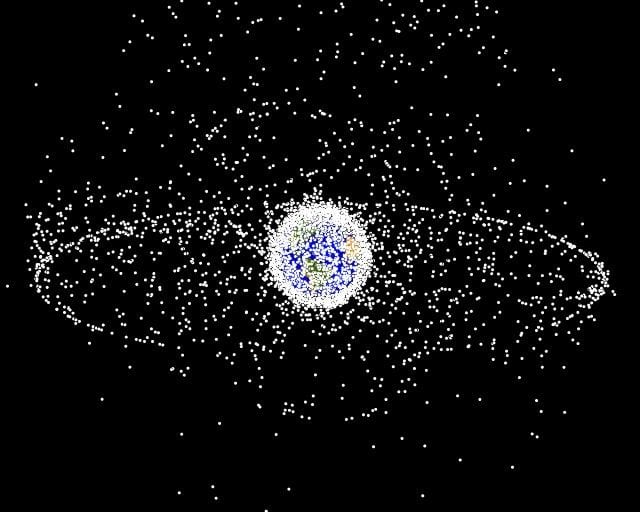FCC Adopts 5-Year Rule for Deorbiting Satellites

Image of orbital debris generated from a distant oblique angle. Photo: NASA
The FCC on Thursday adopted a new rule that requires satellite operators in Low-Earth Orbit to dispose of their satellites, calling it an important step in space safety and orbital debris policy.
Commissioners voted 4-0 to adopt the draft rule, which requires satellites in LEO to deorbit “as soon as practicable but no later than five years after mission completion.” It also gives the industry a two-year transition period. The FCC says this action puts more accountability on satellite operators and minimizes the risk of collisions that would create debris.
This rule replaces a long-standing 25-year guideline, which many agree is no longer relevant with the pace of innovation and activity in the industry.
“For years, it has been the recommended practice for satellite operators to deorbit their spacecraft within 25 years of completing their missions. But 25 years is a long time. There is no reason to wait that long anymore, especially in Low-Earth Orbit,” Chairwoman Jessica Rosenworcel said in a statement. “Our space economy is moving fast. The second space age is here. For it to continue to grow, we need to do more to clean up after ourselves so space innovation can continue to respond.”
Commissioner Nathan Simington said he hopes the decision signals a new regulatory approach to the space economy with rules that are “tough, sensible, and performance-based.”
He said that while the industry may take action that makes this rule an “unused backstop,” the FCC cannot wait for that to happen.
“Orbital debris is a problem, but not a crisis. Not yet,” Simington said. “Our rules may soon be superannuated by innovative solutions from responsible operators who recognize that for any operator to succeed, each must operate with an eye toward safety and sustainability. That could happen. In fact, I hope it does happen. But what we cannot do is bet on it. Hope is not a plan.”
The FCC acted despite a request from leaders of the U.S. House of Representatives Science, Space, and Technology Committee, who asked the FCC to postpone the decision while NASA reevaluates the U.S. Orbital Debris Mitigation Standards and Practices. Lawmakers support action to guard against space debris, but cautioned that FCC could create conflicting U.S. guidelines.